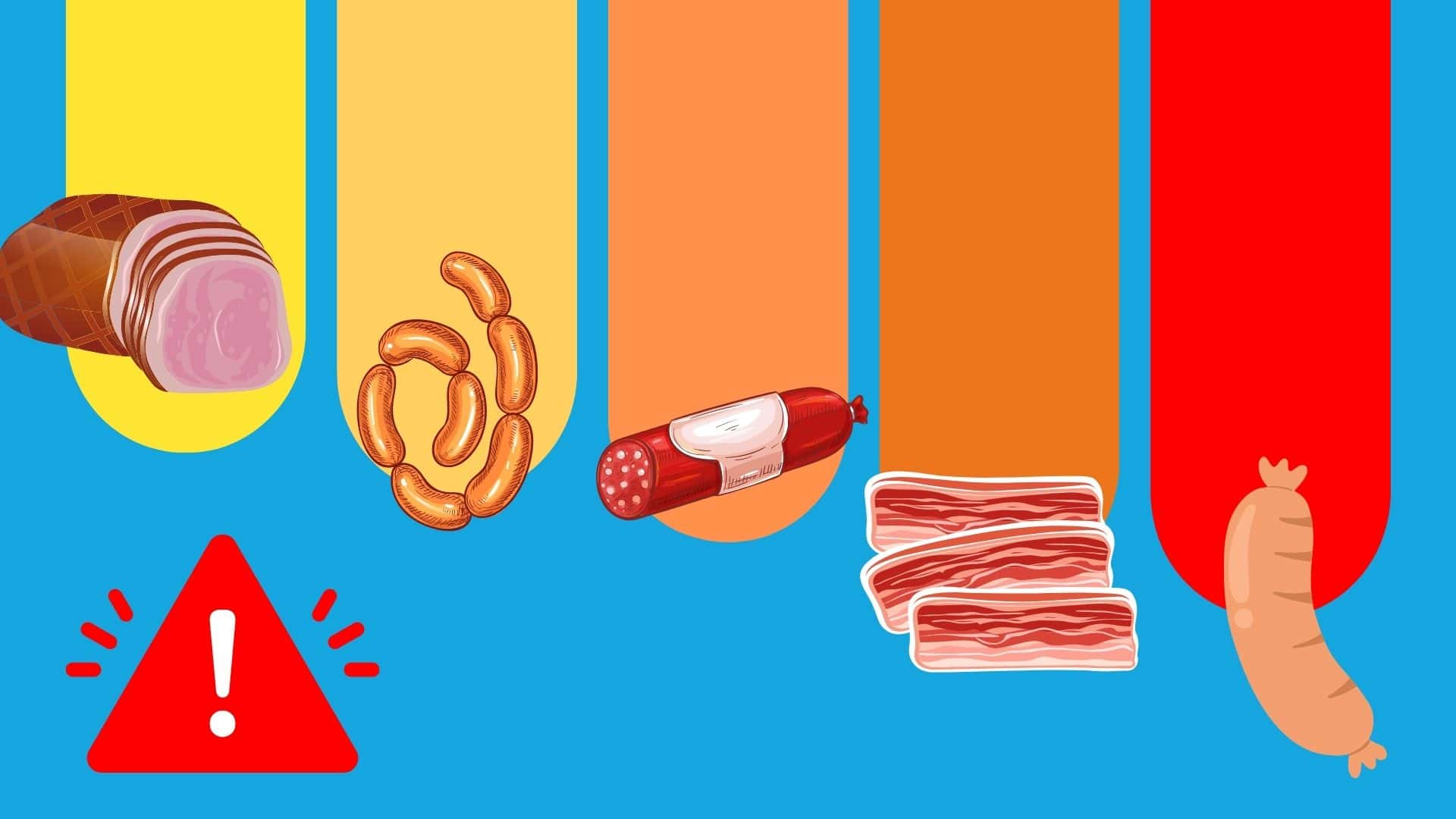
Processed meats have become an everyday staple of many diets, especially in the United States. From hot dogs to hamburgers, processed meats have risen in consumption despite the potential health risks. If you’ve ever considered processed meats as a harmless addition to your diet, it’s worth reconsidering, especially when confronted with the harsh realities of its production. Let’s take a look at what makes ‘processed meats’ processed, what additives are present, and how they can affect your health and diet.

Processed meats are meats that have been preserved through methods such as smoking, salting, curing, or adding chemical preservatives. Some of these meats include deli meats, bacon, ham, jerky and hot dogs. Essentially, these meats have a longer shelf life when compared to fresh meats, but through their treatment they may increase many health risks.
82.1% of Americans consume processed meats, which is a significant number. While processed meats may offer convenience and many enjoy the taste of these meats, it’s important to consider the long-term effects by regularly consuming processed meats.
Despite processed meats’ extended shelf life, these meats have been linked to various health risks including cardiovascular diseases, obesity, certain cancers, and even type 2 diabetes. Processed meats can have an unhealthy amount of salt, fat and preservatives.
So, what exactly are preservatives and what is the difference between nitrates and nitrites?
Preservatives in meat are substances that are added to prevent spoilage, extend shelf life, and maintain the quality of the product. Preservatives are often used in a regulated amount and for good reason. The amount of nitrites and nitrates used in meat is restricted due to cancer and health risks.
Nitrites (NO-2) are compounds of nitrogen and oxygen. They serve important purposes in meat preservation such as color retention, flavor enhancement, and inhibiting the growth of bacteria. Nitrites can either turn into nitric oxide, which can be beneficial, or form into nitrosamines, which are harmful.
Nitrates (NO-3) are similar to nitrites, but contain an extra additional oxygen atom. Nitrates are converted to nitrites in the presence of certain bacteria, and it is the nitrites that primarily keep cured meats safe from bacteria and maintain their color.
While nitrites and nitrates play important roles in meat preservation by inhibiting bacterial growth and preserving color and flavor, their use in processed meats has raised concerns due to the potential formation of nitrosamines. Processed meats are the primary foods where nitrosamines are found in our diets. Nitrosamines are formed when processed meats are exposed to high temperatures, such as when you grill sausages.
There are many studies that show that nitrosamines may increase the risk of bowel and stomach cancer. These chemicals can damage cells in the colon and rectum. By limiting your consumption of processed meats in your diet, it can help decrease any health implications that may arise.
Another preventive is reading the label and educating yourself on the topic, by doing so, you can make informed choices to protect your health and well-being.

Eating less processed meats is a lot more simple than you may think. There are many healthier alternatives that can decrease many health risks. Even though it may seem like a difficult task to face head on, here are some alternate choices.
Let’s say you’re craving a salad or sandwich. Consider using grilled chicken, fish, or a variety of vegetables instead of deli meats. Turkey is another lean option that provides protein without the additives found in processed meats. And if you must have red meat, organic red meat is a great source of protein that doesn’t have chemicals added to it. Taking time to source from a local butcher or farm is another great way to ensure quality, delicious, preservative-free meats.
Unprocessed meats are considered to be unmodified such as fresh turkey, chicken, beef, pork, and fish. Processed meats have a significantly higher amount of sodium when compared to unprocessed meats.
By reducing your consumption and not allowing processed meats to dominate your diet, it helps with the risk of any future health complications. Staying well-informed, reducing processed meats, and making strides to adopt a healthy diet can help you feel your best.